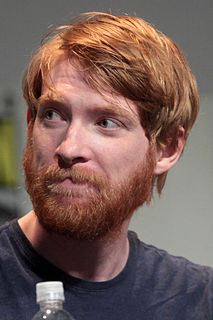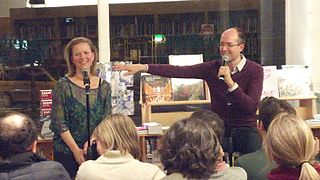A Quote by Elif Batuman
For a Nabokov fan, paging through 'Fine Lines,' which includes a critical introduction and several essayistic evaluations of Nabokov's scientific oeuvre, can feel a bit like reading the second half of 'Pale Fire': one is confronted by a content-rich, almost dementedly tangential commentary on an increasingly inscrutable work.
Related Quotes
Of course, both [Oscar] Wilde & [Vladimir] Nabokov believe in many things, and these things emerge in their writing clearly - for Wilde, the folly of humankind and the (romantic) grandeur of the heroic, lone individual (not unlike Wilde himself); for Nabokov, the possibility of a kind of transcendence through a great, prevailing, superior sort of love (especially in Ada, the most self-congratulatory of novels.)
Vladimir Nabokov was a writer who cared nothing for music and whose favorite sport was the pursuit, capture, and murder of butterflies. This explains many things; for example, the fact that Nabokov's novels, for all their elegance and wit, resemble nothing so much as butterflies pinned to a board: pretty but dead; symmetrical but stiff.
One book that has meant much to my writing is W.G. Sebald's The Emigrants. He uses a photograph of Vladimir Nabokov hunting butterflies in a similar way. The image or a reference to the image is traced throughout the four separate narratives. It sometimes seems to be the only link between the pieces, while the symbol Nabokov cuts remains wide open, a pencil sketch, a mystery to interpret outside his role as emigrant/observer.
Translated literature can be fascinating. There's something so intriguing about reading the text second hand - a piece of prose that has already been through an extra filter, another consciousness, in the guise of the translator. Some of my favorite writers who have written in English were doing so without English being their first language, so there's a sense of distance or of distortion there, too. Conrad. Nabokov. These writers were employing English in interesting ways.
Popper and Nabokov are very different people in some ways - and I'm ready to devote large chunks of my life to both of them. Popper didn't think much of words but thought ideas mattered, and Nabokov didn't think much of ideas, but words mattered, and so on. But both of them had a sense that this is a world of infinite discovery, unending discovery. That quest to discover more in any direction is what I think drives me, and what drives humans, when they're doing the most interesting things.



































